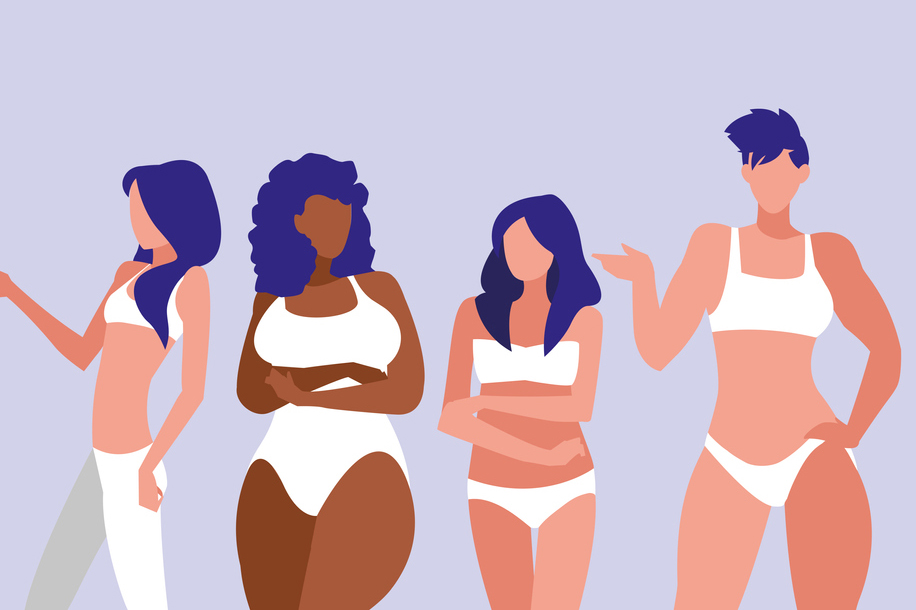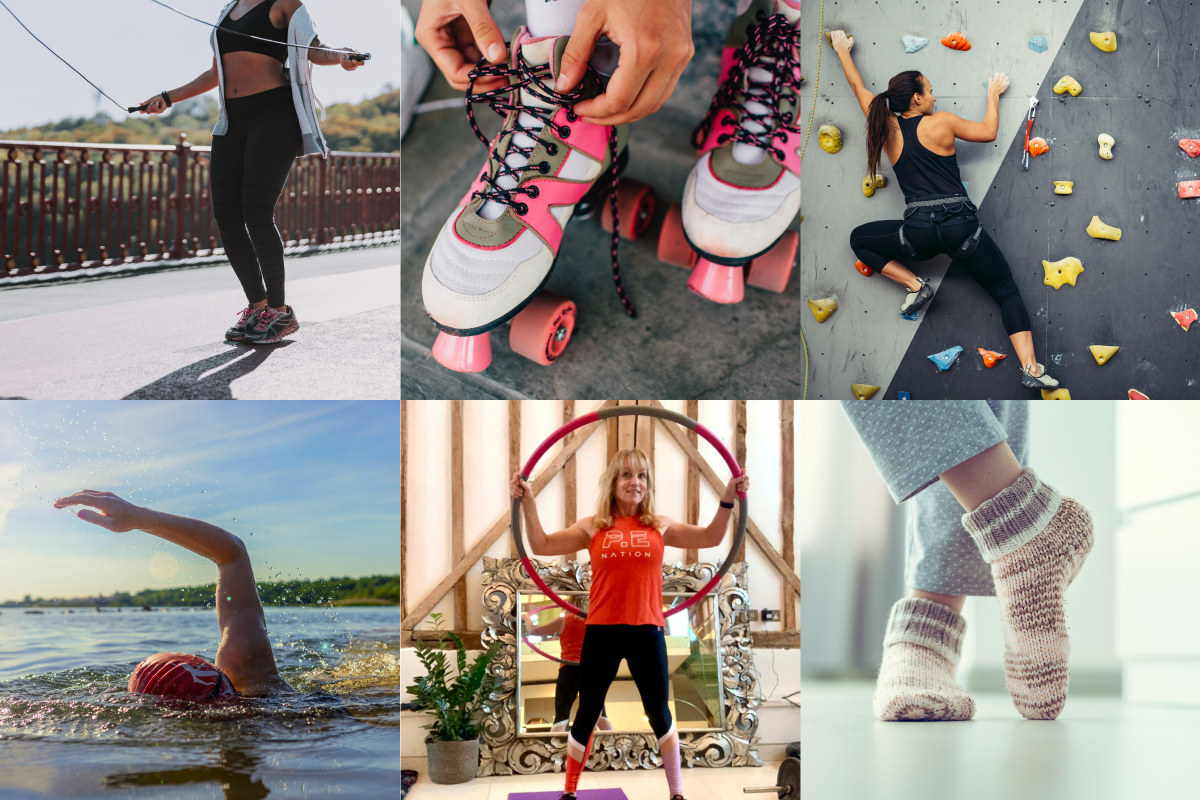A few days ago, GymShark posted an image on Instagram of @_nelly_london in her gym gear. The Instagram comments were flooded with horrible comments from people who thought the brand was guilty of promoting an unhealthy lifestyle because her body didn’t conform to the standard they expected – the standard being slim, muscly and athletic.
People seem to think that showing women of a different weight is promoting an unhealthy lifestyle and unfortunately, it’s not uncommon to see comments online on social media posts of overweight women that speak over concern for their health. But this is based around the idea that overweight people are inherently unhealthy which just isn’t true. There are many different body types and many different reasons why we are all different weights, and it’s not down to laziness. People of all shapes and sizes are worthy of respect regardless of their fitness levels.
Impossible Fitness Standards
The standard that women have to adhere to is impossible. Be slim, but not too slim that you look unhealthy. Have a curvy bum, but a flat stomach. Be fit, but not too muscly that you no longer look ‘feminine’. The truth is, Nelly doesn’t fit into the aesthetic that fitness brands usually put forward. Usually we’re flooded with images of young, beautiful, lean, muscular people. The fitness industry is, at times, discriminatory and ageist and we usually don’t see people who look like us – both in age and size.
Plus, slim and young doesn’t always mean healthy. Sometimes it can come alongside poor self-esteem, body dysmorphia and even eating disorders. For Nelly, her body as it is now has been a long journey – one where she has overcome an eating disorder to get to the point where she loves her body as it is. Whilst we would hope that obsession over body image would decrease as we get older, it’s still prevalent in women over 50. 62% of women over 50 said that their weight and shape negatively affected their lives, and 64% said they thought about their weight on a daily basis. Women with higher BMI’s worried more about their weight, whereas those with lower BMI’s worried more about their skin. *
With so many images around of the ‘ideal’ body, it’s no wonder we spend so much time obsessing about our own bodies. But with more representation in the media – whether it’s different ages or different shapes – we can start reshaping our views by seeing our own bodies as just a normal body.
How Can The Fitness Industry Embrace Body Positivity?
Theres an inherent paradox in the fitness world between wanting to push yourself and focus on self improvement whilst also accepting your body for what is it now. Fitness is often measured by pounds or inches lost and it’s hard to shift those quantifiable results. Even as the industry tries to move away from weight loss and focusing on mental health and feeling good about yourself, the underlying message remains that weight loss is good.
The fitness industry needs to represent everybody and every body. Unless we start to see many different types of body as ‘fit’ rather than just one type, things like what happened to Nelly’s post will keep happening. Of course, there is nothing wrong with wanting to lose weight, or improve your body. But the fact is that all our bodies are different. Two women doing the same amount of exercise and the same diet wont necessary lose the same amount of weight at the same rate. Women come in all sizes – whatever our age. We are naturally different shapes, some of us carry more weight in out bum, and some of us carry it in our stomachs. Some of us are naturally slim, and for some us it takes a lot more work to stay slim. Some of us work out hard but still would be perceived to be overweight. As long as we are healthy, thats all that matters.
Focusing on staying healthy is not only good for our own body image. One study showed that weight neutral programs (that focus on building strength and a healthy body rather than losing weight) actually produce significant, lasting health benefits. The motivation behind working out really matters. If you use exercise to punish your body because you don’t think it’s good enough, you are feeding into a negative body image. Focusing on it bringing you joy and how it makes you feel is more comparative with body positivity.
Imagine a world in which fitness is defined and advertised as something that everyone and everybody participates in, of all weights and ages, not just those who are young and thin. Imagine if we all focused on feeling good and feeling stronger both physically and mentally. Imagine gyms feeling like safes spaces no matter what your body type. Imagine Instagram accounts showed women of all body shapes and ages, to show that we are all normal, and all worth of being part of the fitness world, without people leaving horrible comments.
We’re ready for it!
*https://www.ncbi.nlm.nih.gov/pmc/articles/PMC4452130/





